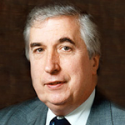On October 31, 2024, a Second Circuit panel amended its August 2023 decision in New England Carpenters Guaranteed Annuity & Pension Funds v. DeCarlo after granting a motion for rehearing1 and held that misstatements in an audit opinion may be
…
In the 90 years since the passage of the Securities Exchange Act, the number of ways market participants can publicly disseminate statements to investors has skyrocketed. Yet no regulator, legislator, or judge has answered a fundamental question: Should the law …
Securities fraud and short sellers are strange bedfellows. The stereotypical story involving both happens when short sellers bring to light false statements of issuers, prompting corrective disclosures and giving shareholders a cause of action. At times, issuers accuse these short …
For a brief moment last month, Kodak Corporation’s stock soared from $2 a share to more than $33 a share on news that it might obtain substantial government financing. At that peak, Kodak director George Karfunkel unloaded shares then worth …
Most securities fraud class actions under SEC Rule 10b-5 involve revelation of negative information about the defendant company that should have been disclosed earlier – bad news that (allegedly) has been covered up by company agents. The standard remedy in …
Companies can get big without going public. The number of U.S. listed companies is down by half, and the last few years have seen more capital raised on the private side than on the public side. Despite this well-documented shift …
In Lorenzo v. SEC, the U.S. Supreme Court continued the struggle to define the difference between primary liability and aiding and abetting liability in Rule 10b-5 and other securities fraud claims. The difference matters because private plaintiffs do not have …
U.S. Insider trading law is strange. Because Congress has never adopted a comprehensive statute on the subject, insider trading law is largely a species of federal common law. That’s not to say that the Supreme Court has nothing to go …
I am very happy and honored to be back before this committee. I have been asked to comment on several proposed bills, all of which I basically support, but I will focus my limited time today primarily on Congressman Himes’ …
Traditionally, securities fraud has been civilly enforced under Section 10(b) of the Exchange Act and Rule 10b-5 promulgated thereunder, and criminally prosecuted under Section 32 of the Exchange Act. Recently, however, the SEC has increasingly asserted claims under Section 17(a)(2) …
On January 24, former SAC Capital Advisors portfolio manager Mathew Martoma petitioned the Supreme Court to review his 2014 conviction for insider trading. Martoma’s conviction stems from activity in 2008 when he paid a doctor from the University of Michigan …
On June 18, 2018, the Supreme Court granted cert in Lorenzo v. Securities and Exchange Commission (Lorenzo), a case that presents significant questions about the federal securities laws. Lorenzo also comes with a twist: The underlying D.C. Circuit decision …
On April 20, 2018, the Court of Appeals for the Ninth Circuit held in Varjabedian v. Emulex Corp. that a violation of Section 14(e) of the Securities Exchange Act of 1934, 15 U.S.C. § 78n(e) (Exchange Act), which governs tender …
How does legal knowledge affect corporate insiders’ trading behavior? Do corporate insiders with law degrees trade differently from others? On the one hand, with a better understanding of regulations, legal insiders are more aware of the effects and risk of …
Is a CEO’s statement that “I believe the TVs we manufacture have the highest resolution on the market” potentially actionable as an “untrue statement of material fact” under § 10(b) of the Securities Exchange Act and Rule 10b-5 promulgated thereunder? …
If a party obtains information about a public firm before its initial public offering (IPO), and the party themselves is not an insider of the firm, should they be allowed to profit from the information after the IPO? We investigate …
Recently, the United States Court of Appeals for the Second Circuit in Stratte-McClure v. Morgan Stanley, No. 13-0627-CV, 2015 WL 136312 (2d Cir. Jan. 12, 2015) affirmed dismissal of a securities fraud class action lawsuit. The Court also ruled, …
The following post comes to us from Wendy Gerwick Couture, Associate Professor at the University of Idaho College of Law. It is based on her recent paper entitled “Answering Halliburton II’s Unanswered Question: Burdens of Production and Persuasion on Price …
[On December 10, 2014] the Second Circuit Court of Appeals issued an important decision overturning the insider trading convictions of two portfolio managers while clarifying what the government must prove to establish so-called “tippee liability.” United States v. Newman, et …
The current scope of the insider trading prohibition is arbitrary and unrationalized. Both sides in the debate should be able to agree on this, as the current scope is at the same time both underinclusive and overinclusive. On the one hand, if a thief breaks into your office, opens your files, learns material, nonpublic information, and trades on that information, he has neither breached a fiduciary duty nor “feigned fidelity” to the source and is presumably immune from insider trading liability under current law. On the other hand, if an employee of an acquiring firm seeks to test out information about a potential target with a friend at a major investor in the target and that investor later acquires more stock in the target based on that conversation, it is possible under SEC v. Obus that the employee will be deemed to have violated Rule 10b-5 on theory that he made a gift of the information, even though no payment or economic benefit is paid to the alleged tipper. This is considerably grayer behavior than that of the thief. Thus, drawing lines so that the thief escapes liability, while the inquiring employee does not, seems morally incoherent. Nor are such lines doctrinally necessary.
 Sky Blog
Sky Blog
















